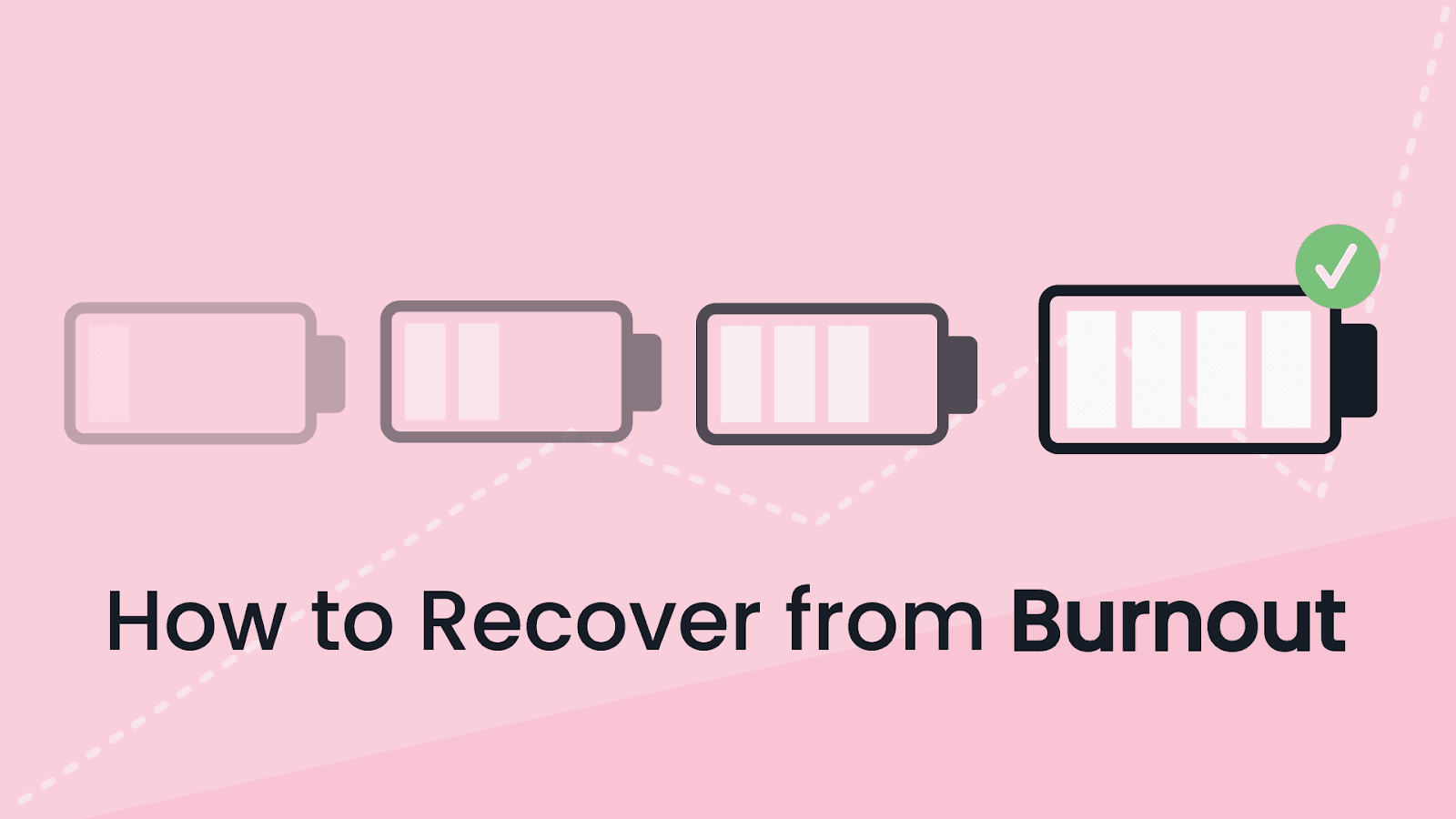

In today’s fast-paced world, burnout has become an increasingly common issue. Let’s learn more about this topic below with Pacman as we explore effective strategies to overcome exhaustion and reclaim your vitality.
Burnout is a state of physical, emotional, and mental exhaustion that can leave you feeling drained and unmotivated. It often occurs when you experience prolonged periods of stress and overwhelm, leading to a decrease in productivity and overall well-being. Recognizing the signs of burnout is crucial for taking proactive steps towards recovery. In this article, we’ll delve into ten powerful ways to restore your energy and overcome burnout, helping you regain balance and enthusiasm in your personal and professional life.
Burnout is more than just feeling tired or stressed; it’s a comprehensive state of exhaustion that affects various aspects of your life. The World Health Organization recognizes burnout as an occupational phenomenon, characterized by feelings of energy depletion, increased mental distance from one’s job, and reduced professional efficacy. However, burnout can extend beyond the workplace, impacting personal relationships, hobbies, and overall quality of life.
The effects of burnout can be far-reaching and detrimental. Physically, you may experience chronic fatigue, insomnia, and a weakened immune system. Emotionally, burnout can lead to feelings of cynicism, detachment, and a loss of motivation. Cognitive symptoms may include difficulty concentrating, decreased creativity, and impaired decision-making abilities. Recognizing these signs is the first step towards recovery.
It’s essential to understand that burnout doesn’t happen overnight. It’s a gradual process that develops over time, often due to prolonged exposure to high-stress situations without adequate coping mechanisms or support. Factors such as a heavy workload, lack of control over one’s job, unclear job expectations, dysfunctional workplace dynamics, and a poor work-life balance can all contribute to the development of burnout.
Self-care plays a crucial role in recovering from burnout and preventing its recurrence. It involves taking deliberate actions to nurture your physical, mental, and emotional well-being. When you’re experiencing burnout, it’s easy to neglect self-care routines, but this is precisely when you need them the most.
Incorporating self-care practices into your daily routine can help replenish your energy reserves and build resilience against stress. This doesn’t mean you need to make drastic changes or invest in expensive treatments. Simple, consistent actions can make a significant difference in your overall well-being.
One effective self-care strategy is to establish boundaries. This involves learning to say “no” to additional commitments when you’re already stretched thin and setting clear limits on your work hours. It’s also important to create dedicated time for activities that bring you joy and relaxation, whether that’s reading a book, taking a leisurely walk, or enjoying a hobby like playing Pacman.
Quality sleep is fundamental to recovery from burnout. Aim for 7-9 hours of sleep per night and establish a consistent sleep schedule. Create a relaxing bedtime routine, such as reading a book or practicing gentle stretches. Avoid screens at least an hour before bed, as the blue light can interfere with your sleep cycle. Consider using blackout curtains, earplugs, or a white noise machine to create an optimal sleep environment.
During the day, don’t hesitate to take short breaks or power naps when needed. Even a 10-15 minute rest can help refresh your mind and boost your energy levels. Remember, rest is not a luxury; it’s a necessity for maintaining your health and productivity.
What you eat significantly impacts your energy levels and overall well-being. Focus on consuming a balanced diet rich in fruits, vegetables, whole grains, lean proteins, and healthy fats. These nutrient-dense foods provide the vitamins and minerals your body needs to function optimally and combat stress.
Stay hydrated by drinking plenty of water throughout the day. Dehydration can exacerbate feelings of fatigue and irritability. Limit your intake of caffeine, alcohol, and processed foods, as these can disrupt your sleep patterns and energy levels.
Consider incorporating foods known for their stress-reducing properties, such as dark chocolate, berries, nuts, and fatty fish rich in omega-3 fatty acids. These foods can help support your body’s stress response and promote overall well-being.
Exercise is a powerful tool for combating burnout. Regular physical activity releases endorphins, improves mood, reduces stress, and boosts energy levels. Find activities you enjoy, whether it’s jogging, swimming, cycling, or dancing. Aim for at least 30 minutes of moderate exercise most days of the week.
If you’re feeling particularly exhausted, start with gentle exercises like yoga or tai chi. These practices not only provide physical benefits but also incorporate mindfulness elements that can help reduce stress and promote relaxation.
Remember, consistency is key. Even a short daily walk can make a significant difference in your energy levels and overall well-being. Consider inviting a friend to join you in your exercise routine for added motivation and social support.
Mindfulness and meditation are powerful techniques for managing stress and preventing burnout. These practices help you stay present in the moment, reduce anxiety, and improve focus. Start with just a few minutes of mindfulness or meditation each day and gradually increase the duration as you become more comfortable with the practice.
There are various forms of meditation you can explore, such as guided visualizations, body scans, or loving-kindness meditation. Experiment with different techniques to find what resonates with you. Apps like Headspace or Calm can be helpful for beginners, offering guided meditations and mindfulness exercises.
Incorporate mindfulness into your daily activities by paying full attention to what you’re doing, whether it’s eating, walking, or even playing a game of Pacman. This practice of being present can help reduce stress and increase your appreciation for life’s simple pleasures.
When experiencing burnout, it’s common to lose touch with the activities that once brought you joy. Rediscovering your passions and hobbies can be a powerful way to restore your energy and enthusiasm for life. Think back to activities you enjoyed in the past or consider trying something new that has always intrigued you.
Engaging in hobbies provides a much-needed break from work-related stress and allows you to express yourself creatively. Whether it’s painting, gardening, cooking, playing an instrument, or even diving into a classic game like Pacman, dedicating time to activities you enjoy can significantly improve your mood and overall well-being.
Don’t put pressure on yourself to excel in these activities; the goal is to have fun and relax. Allow yourself to be a beginner and enjoy the process of learning and exploring new interests.
Social support is crucial in overcoming burnout. Reconnect with friends and family members who uplift and energize you. Share your feelings and experiences with trusted individuals who can offer empathy and support.
Consider joining a support group or seeking professional help if you’re struggling to cope with burnout on your own. Talking to others who have experienced similar challenges can provide valuable insights and coping strategies.
Remember to set boundaries in your social interactions as well. It’s okay to decline invitations or limit your time with people who drain your energy. Focus on nurturing relationships that are positive and supportive.
Burnout often occurs when there’s a misalignment between your values, goals, and daily activities. Take time to reflect on what truly matters to you. Are your current commitments and responsibilities in line with your core values and long-term aspirations?
Consider creating a vision board or journaling about your ideal life. This can help clarify your priorities and guide you in making decisions that align with your true desires. Be willing to let go of commitments or goals that no longer serve you or bring you joy.
Set realistic and achievable goals for yourself, breaking them down into smaller, manageable steps. Celebrate your progress along the way, no matter how small. This approach can help restore a sense of purpose and accomplishment, countering the feelings of ineffectiveness often associated with burnout.
Developing effective stress management strategies is essential for recovering from burnout and preventing its recurrence. Deep breathing exercises, progressive muscle relaxation, and guided imagery are all powerful techniques for reducing stress and promoting relax